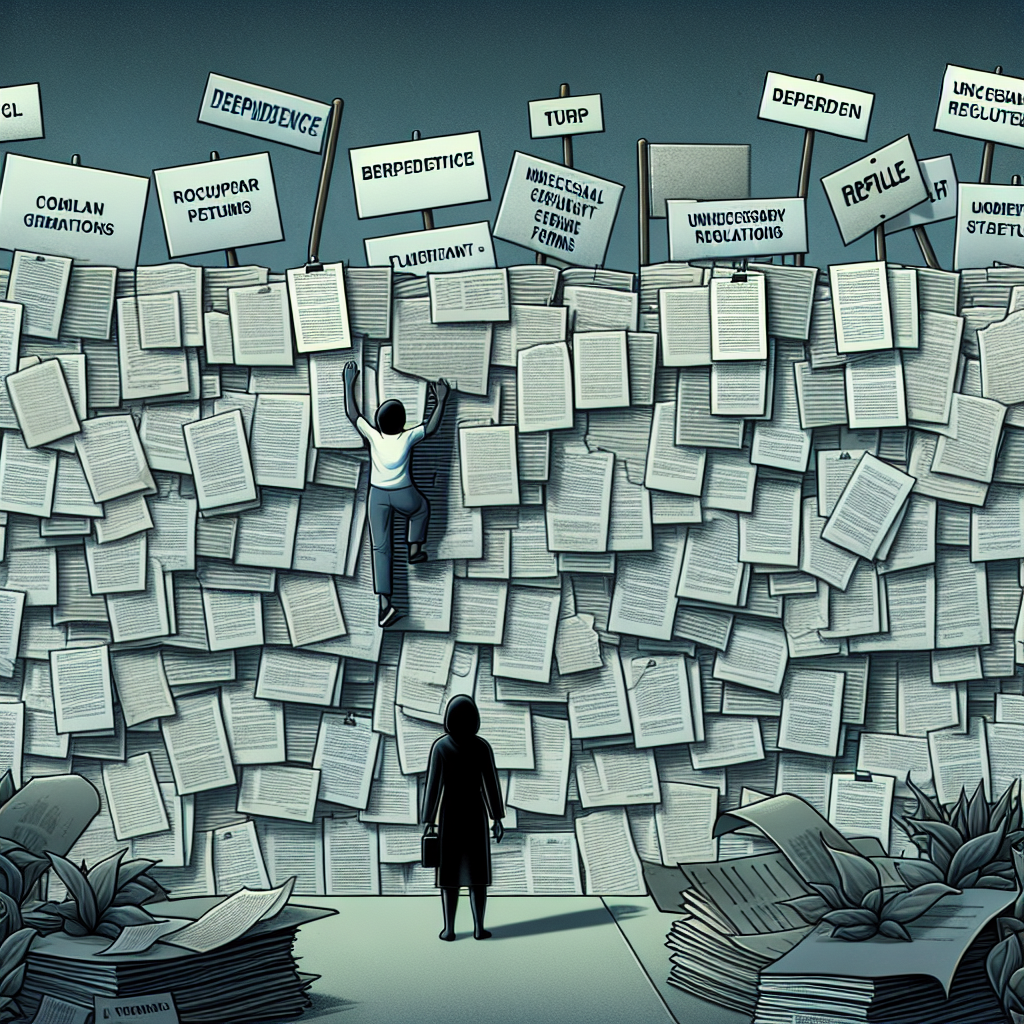The erosion of trust in government has been palpable among citizens, as evidenced by increasing awareness of systemic corruption and policies that threaten individual independence. Many feel that government actions actively work against their ability to live autonomously and self-sufficiently, particularly through legislative maneuvers and regulatory restrictions. The impact of this is felt in various aspects of daily life, signaling a troubling trend where government intervention undermines the very liberties it claims to protect. The following eight areas illustrate how government actions can limit individual freedom and discourage self-reliance.
First and foremost, the repression of free speech marks a significant step away from citizens’ freedoms. Recent years have seen an alarming rise in censorship practices across social media platforms and traditional media. Revelations about the government’s close ties with tech giants like Google and Facebook suggest an unsettling partnership meant to suppress dissenting voices. As a result, many individuals have faced substantial repercussions—losing their jobs or being banned from online platforms—merely for exercising their right to express their opinions. This climate of fear stifles public discourse and limits individuals’ ability to participate in meaningful discussions about critical issues.
Equally troubling is the government’s apparent agenda to restrict Second Amendment rights. Ensuring the right to bear arms is fundamentally linked to maintaining the ability to defend one’s freedoms, including that of free speech. The Founding Fathers recognized this intrinsic connection, emphasizing the need for individuals to protect their rights from potential government overreach. Without the ability to defend these rights, the risk of personal liberties eroding increases, raising alarms over how effectively citizens can safeguard their independence in the face of governmental pressure.
The crisis of affordable housing also highlights government inaction amid a growing trend of monopolized property purchases. Major investment firms have begun acquiring vast shares of single-family homes, leaving average Americans increasingly sidelined and unable to secure stable housing. This exacerbates the homelessness crisis while creating a situation where citizens may eventually own nothing, which echoes concerns voiced about the “Great Reset” theory. As access to affordable housing dwindles, individual economic mobility is threatened, underscoring a pattern where large corporations profit while everyday citizens suffer.
Moreover, the government’s regulatory efforts extend to restricting at-home food production, such as the backyard raising of chickens. With food prices soaring—e.g., eggs costing as much as $6 per dozen—regulatory barriers to home food production pose real challenges for families seeking self-sufficiency. Rather than facilitating this independence, governmental restrictions on simple practices like raising hens hinder the ability of families to feed themselves economically. If the government actively promoted such practices, Americans could better withstand food price fluctuations and shortages, enhancing overall community resilience.
Water independence is another area where government intervention appears counterproductive. Laws in various states that restrict rainwater harvesting symbolize a broader issue of governmental control over essential resources. By preventing individuals from collecting and storing water during rain events, the government undermines citizens’ capabilities to prepare for emergencies and meet their basic needs. This restriction not only fosters reliance on government-sanctioned water supplies but diminishes personal autonomy regarding resource management.
In addition, fluctuating energy prices driven by governmental regulations present another obstacle to independent living. The government has significantly impacted fuel production through restrictive policies, leading to higher energy costs for consumers. As the nation grapples with an energy crisis, the restrictions on domestic oil production raise concerns about self-sufficiency and the ability to maintain a stable lifestyle. Historically, the U.S. has been a net energy exporter; fostering homegrown production would not only enhance individual independence but contribute to national and global energy security.
Other factors further complicate individuals’ journeys toward independence, such as taxation without representation. The IRS’s expanded tax obligations, including reporting requirements for minor payments, diminish financial independence and breed resentment among taxpayers. The growing tax burden, coupled with government intervention in end-of-life matters, including healthcare and estate management, illustrates a pattern of increasing governmental control over personal affairs. As families navigate the complexities of caring for aging loved ones, they often find the government interceding in their decisions, diverting inherited wealth, and imposing crippling regulations.
In summary, while the government provides essential services, its growing encroachment on individual freedoms threatens the very fabric of independence. Citizens must navigate a landscape rife with hurdles, often imposed by the very institutions designed to uphold their rights. This unsettling trend begs the question: Is apathy allowing government overreach to stifle independence, or is it a lack of awareness about the importance of engagement and advocacy? Encouraging individuals to reclaim their rights—through voting, organizing, or community engagement—could usher in the necessary changes to reclaim their autonomy and fortify the first principles of this nation.

